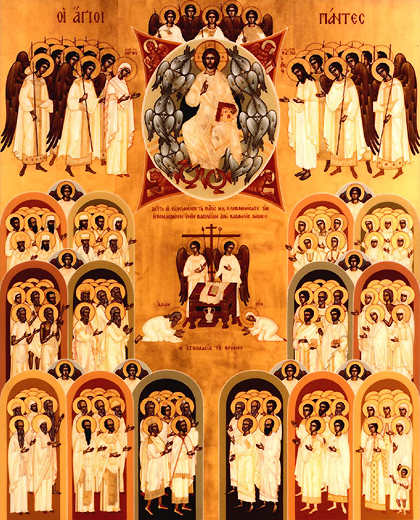Message of Abbot Paul - Tuesday 23rd May 2023
Abbot Paul • May 22, 2023

Yesterday I spent over six hours at meetings, so by the time I came to write this short message my mind was no longer thinking straight and my eyes could hardly see the keyboard. Even on a good day I keep hitting the wrong keys, so you can imagine how bad it gets when I’m tired and falling asleep at my desk. As it happens, today’s Gospel reading is the same as last Sunday’s, (Jn 17: 1-11), the first part of Jesus’ High Priestly Prayer, so I wrote about it just two days’ ago. I ask you to forgive me if I limit myself to a few sentences.
Having spoken with his disciples at great length, Jesus concludes his Farewell Discourse with a prayer, which is addressed to his heavenly Father and yet spoken aloud that his disciples might hear and learn more about his relationship both with the Father and with them. This is why he explains what eternal life is, not because the Father needs to know, but because, even in prayer, he is still instructing his disciples.
“And eternal life is this:
to know you,
the only true God,
and Jesus Christ whom you have sent.”
Now this is a breath-taking, mind-blowing description of eternal life, hardly what the disciples are expecting. We think of life in terms of length of time, even eternal life, as it’s the only way we can visualise time. For Jesus, eternal life is nothing if not knowing God and the Christ he sent and this can only be the work of the Holy Spirit. Hence, eternal life is knowing the triune God, seeing him and loving him, living or abiding in God and being one with him.
A truly consoling thought is that Jesus prays for us, his disciples, to his heavenly Father, and in this prayer, Jesus assures them of his mission to pray for them. Now the prayer of Jesus is not simply words, but the salvific actions that bring the words to life and fill them with meaning.
“I pray for them;
for those you have given me,
because they belong to you:
all I have is yours
and all you have is mine,
and in them I am glorified.”
Jesus intercedes for us with the Father. He did this at the Last Supper, in the Garden of Gethsemane, hanging on the Cross and lying in the Tomb. He prays for us in the glory of his Resurrection and Ascension and in the Coming of the Holy Spirit. As St Paul wrote to Timothy, (1Tim 2: 5-6), “For there is one God, and there is one mediator between God and men, the man Christ Jesus, who gave himself as a ransom for all, which is the testimony given fat the proper time.”









